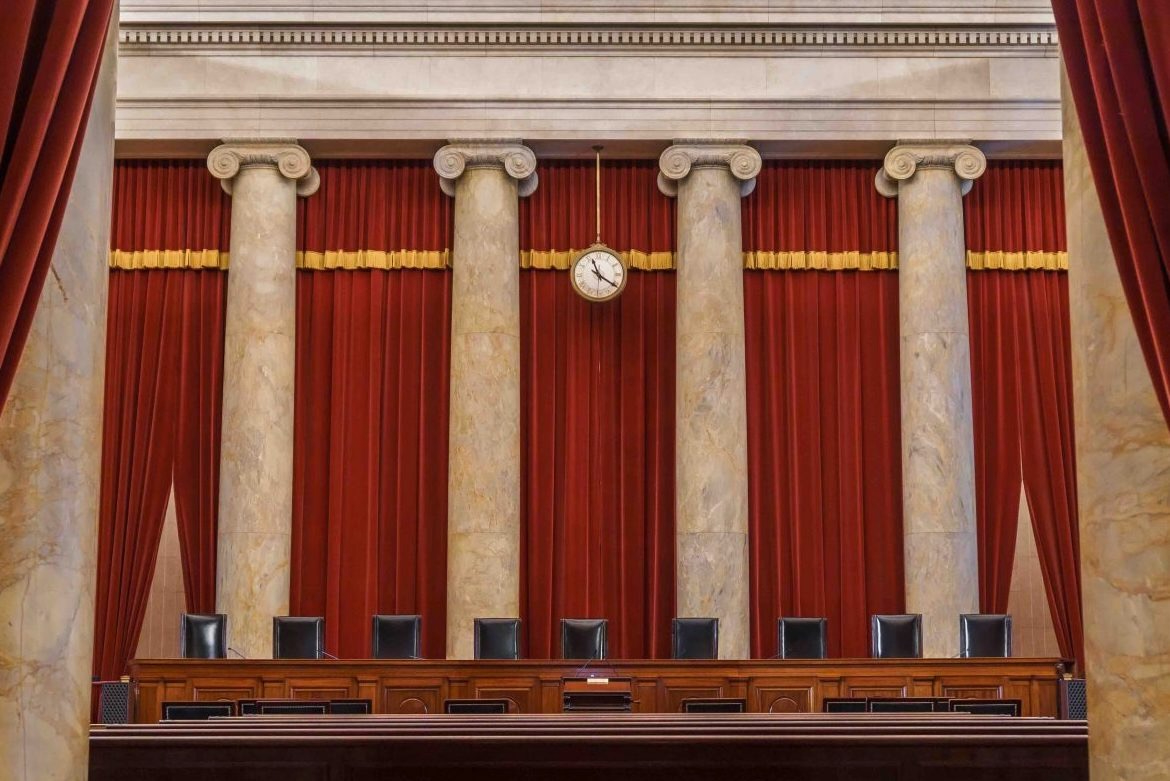EMERGENCY DOCKET
on Mar 28, 2025
at 6:48 pm

The government came to the court with Department of Education v. California on Wednesday. (Erik Cox Photography via Shutterstock)
Eight states, led by California, on Friday urged the Supreme Court to leave in place an order by a federal judge in Massachusetts that requires the Department of Education to restore more than $65 million in grants, intended to address teacher shortages, that it ended in February because the funded programs included diversity, equity, and inclusion initiatives.
In a 40-page filing, the states told the justices that there was no reason for them to intervene. “Because the district court acted responsibly — entering a narrow and time-limited restraining order to preserve the status quo while moving rapidly to adjudicate” the state’s request for a preliminary injunction, the government cannot appeal the district court’s order, the states argue, and the government’s appeal will in any event be moot (that is, no longer a live controversy) by early April.
At issue in the case are two grant programs for teacher recruitment, training, and professional development. The Department of Education canceled nearly all of the grants under the program – 104 out of 109 – in early February, after reviews found “objectionable” material relating to DEI in them.
The states – California, along with Massachusetts, New Jersey, Colorado, Illinois, Maryland, New York, and Wisconsin – challenged the termination of the grants in federal court in Massachusetts. They contended that universities and nonprofits in their states had received grants through the programs, and that the cancellation of the grants had violated the federal law governing administrative agencies.
U.S. District Judge Myong Joun issued a temporary order on March 10 instructing the department to restore the grants that it had cancelled in the eight states bringing the lawsuit, and he prohibited the department from carrying out other terminations in those states.
A federal appeals court in Boston rejected the department’s request to pause Joun’s order while it appealed, prompting Acting Solicitor General Sarah Harris to go to the Supreme Court on Wednesday.
In their filing on Friday, the states push back against the federal government’s suggestion that if Joun’s order is not paused, it will create an incentive for groups to quickly draw down the funds, and the government will not be able to recover them even if the order is later reversed. “But the order has been in place for 18 days,” the state observed, “and ‘the Department has not pointed to any evidence of any attempt at any such withdrawal by any recipient’ — ‘or rebutted the contention that it could stop such an attempted withdrawal’ or recover the funds.”
The states also suggest that, because the stakes in this case are relatively low, the federal government’s “real concern” is with the other cases around the country “where courts are grappling with a raft of legal disputes arising out of recent actions by the Executive Branch. Those concerns,” the states concluded, “are properly litigated in the context of those other cases.”
This article was originally published at Howe on the Court.






